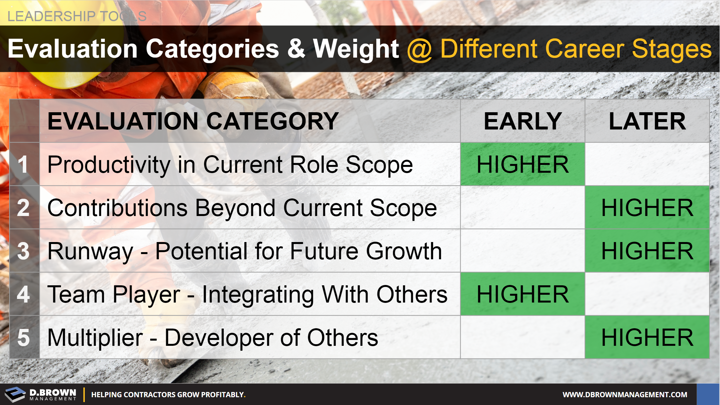The weight assigned to each of these depends on the stage someone is at in their career. At an entry level, it is about individual performance within the scope of the job role and how well the individual integrates with the rest of the team.
As a person's career progresses, they must maintain that foundation of competence in their job role and at being a team player. Beyond that, the following should be considered:
- What kind of future potential realistically exists for growth in the current role and beyond?
- How much is an individual contributing outside their currently defined role scope?
- How many others have been developed by this person that can do the same job functions or more?
If you started at this high-level, how would you evaluate yourself on each of these categories 0-10?
What specifically can you do to improve your score on each over the next year?
If you look at those on your team, what can you do to help them improve their scores?

